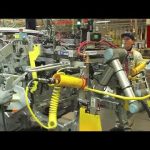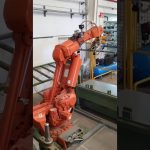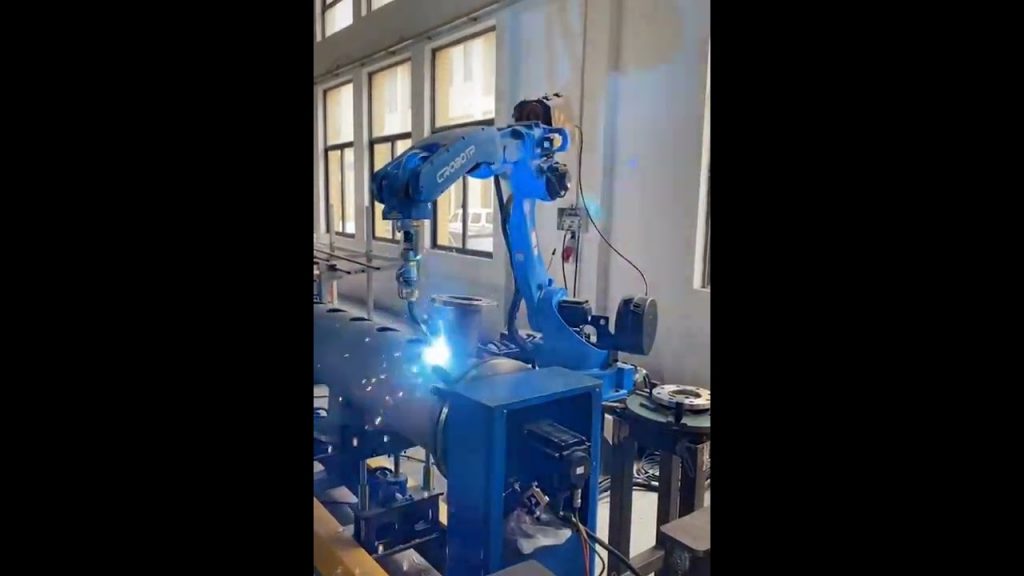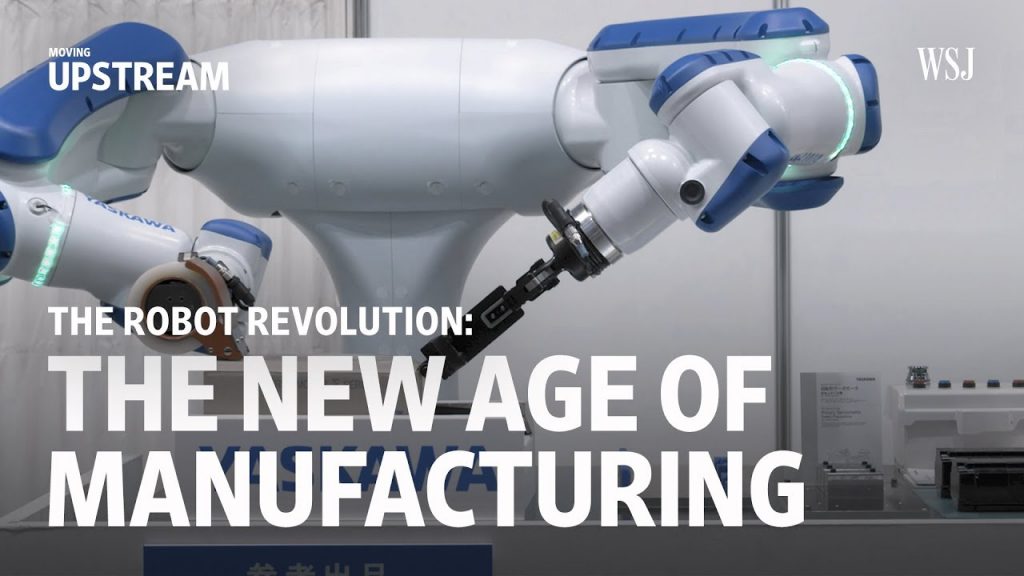Are you interested in Industrial Robot Training? Look no further! In this YouTube video, we will provide you with valuable insights into Industrial Robot Training and how it can benefit your business. Whether you are new to the concept or already familiar with it, this video will provide you with a comprehensive overview of Industrial Robot Training and its applications.
Opinion/Thought Piece Style:
Title: Revolutionizing Industrial Operations: The Power of Industrial Robot Training
Introduction:
Industrial Robot Training has become a game-changer in the manufacturing industry. With the ever-increasing demand for automation and efficiency, companies are turning to robots to streamline their operations. This article aims to shed light on the importance of Industrial Robot Training and how it can revolutionize your business.
Why is Industrial Robot Training crucial?
Industrial Robot Training equips employees with the necessary skills to operate and program robots effectively. It ensures that workers are well-prepared to handle complex tasks, resulting in increased productivity and reduced downtime. By investing in Industrial Robot Training, companies can stay ahead of the competition and adapt to the rapidly changing industrial landscape.
The Benefits of Industrial Robot Training:
1. Enhanced Efficiency: Industrial Robot Training empowers employees with the knowledge and skills to optimize robot performance, resulting in increased productivity and reduced errors.
2. Cost Savings: By minimizing human error and improving efficiency, Industrial Robot Training helps companies save both time and money. It also reduces the risk of accidents and equipment damage.
3. Versatility: Robots can be programmed to perform a wide range of tasks, from assembly and packaging to welding and material handling. Industrial Robot Training equips employees to handle these diverse applications effectively.
4. Improved Safety: Robots are designed to handle hazardous tasks, reducing the risk of accidents and injuries for human workers. Industrial Robot Training ensures that employees are aware of safety protocols and can work collaboratively with robots.
Case Study Style:
Title: Transforming Manufacturing Processes: A Success Story of Industrial Robot Training
Introduction:
In this case study, we will explore how XYZ Manufacturing Company successfully implemented Industrial Robot Training to optimize their operations and achieve significant improvements in efficiency and productivity.
Background:
XYZ Manufacturing Company is a leading player in the automotive industry, known for its commitment to innovation and continuous improvement. With an increasing demand for their products, they faced challenges in meeting production targets and maintaining quality standards. To overcome these hurdles, they decided to invest in Industrial Robot Training.
Implementation:
XYZ Manufacturing Company partnered with a renowned training institution to provide their employees with comprehensive Industrial Robot Training. The training program covered various aspects, including robot programming, maintenance, troubleshooting, and safety protocols.
Results and Benefits:
1. Increased Productivity: With the acquired skills, employees were able to program robots to perform tasks more efficiently, resulting in a significant increase in productivity. This allowed XYZ Manufacturing Company to meet production targets and fulfill customer demands promptly.
2. Improved Quality: Industrial Robot Training helped employees identify and rectify errors in real-time, ensuring superior product quality. The precision and accuracy of robots contributed to consistent output, reducing the likelihood of defects.
3. Enhanced Safety: Employees were trained to work safely alongside robots, minimizing the risk of accidents. Strict adherence to safety protocols led to a safer working environment for all personnel.
4. Cost Savings: The implementation of Industrial Robot Training resulted in reduced labor costs and improved overall efficiency. The company witnessed a decrease in operational expenses and an increase in profitability.
Explanatory Style:
Title: Industrial Robot Training: Unlocking the Potential of Automation
Introduction:
In this video, we will explore the world of Industrial Robot Training and how it can unlock the potential of automation in various industries. From manufacturing to logistics, robots are revolutionizing the way businesses operate. Join us as we delve into the intricacies of Industrial Robot Training and its impact on the industrial landscape.
Understanding Industrial Robot Training:
Industrial Robot Training involves equipping employees with the knowledge and skills necessary to operate, program, and maintain robots effectively. It covers a wide range of topics, including robot programming languages, safety protocols, and troubleshooting techniques.
Applications of Industrial Robot Training:
1. Assembly and Packaging: Robots are extensively used in assembly lines, where they can efficiently perform repetitive tasks such as picking, placing, and packaging. Industrial Robot Training enables employees to program robots to handle these tasks with precision and speed.
2. Welding and Material Handling: In industries such as automotive and construction, robots are utilized for welding and material handling operations. Industrial Robot Training equips employees with the expertise to program robots for these tasks, resulting in improved efficiency and accuracy.
3. Inspection and Quality Control: Robots equipped with vision systems can perform intricate inspections and quality control checks. Industrial Robot Training familiarizes employees with the operation of vision systems, enabling them to ensure product quality and consistency.
4. Collaborative Robots (Cobots): Industrial Robot Training also encompasses the use of collaborative robots, which can work alongside humans safely. These robots are designed to assist workers in tasks that require strength or precision. Training employees on cobot operation and safety protocols ensures seamless collaboration between humans and robots.
Conclusion:
Industrial Robot Training is a transformative investment for businesses seeking to leverage the power of automation. By equipping employees with the necessary skills, companies can unlock the potential of robots and achieve enhanced efficiency, improved quality, and cost savings. Stay ahead of the competition by embracing Industrial Robot Training and revolutionizing your operations.
Check the coil packing solution with a leading manufacturer for professional solutions. Click here to explore more options. Industrial Robot
“Mastering Industrial Robot Training: Enhance Skills for Vision System Integration”













